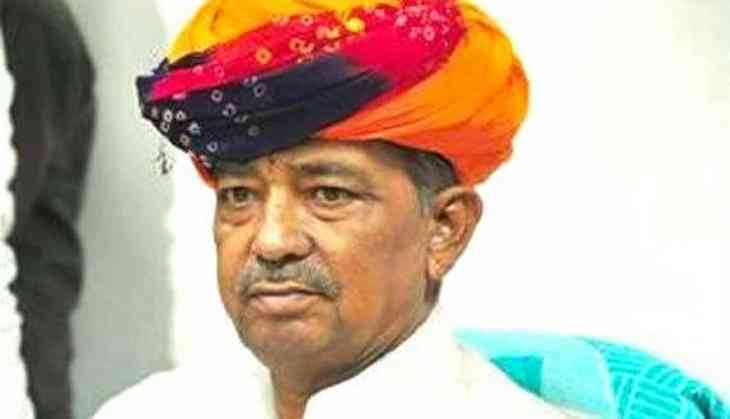
JAIPUR: Nearly three weeks after he suffered a cardiac arrest during the visit of BJP national President Amit Shah to the State capital, former Union Minister and Rajasthan Kisan Ayog chairman Sanwar Lal Jat passed away in the wee hours of Wednesday in New Delhi.
Jat, who was 62-year-old, breathed his last at AIIMS, Delhi. On July 22 after he collapsed in the BJP State office during a meeting, he was rushed to Sawai Man Singh Hospital in the city. After a few days he was shifted to AIIMS. The Rajasthan Government has announced a day's state mourning on Thursday as a token of homage to him.
A pall of gloom descended on his native village Gopalpura in Ajmer district as the news of his demise spread. Jat's body was brought to Jaipur in the afternoon and was kept at the State BJP headquarters for people to pay homage. The body would be taken to Gopalpura village for the last rites, which is scheduled at 3 pm on Thursday.
Sanwar Lal Jat, who was a popular Jat leader had defeated Sachin Pilot in the 2014 Lok Sabha elections from Ajmer seat and became a Minister in the Narendra Modi cabinet. Between 1990 and May 2014, he was elected to the Rajasthan Assembly five times He was a Cabinet Minister in the Vasundhara Raje Government between 2003 and 2008. When Raje was re-elected in 2013, Jat was again given a Cabinet berth by Raje. Prior to joining active politics, Jat had been teaching in the University of Rajasthan
On November 9, 2014, Jat was inducted in the Narendra Modi Cabinet as Union Minister of State for Water Resources, River Development and Ganga Rejuvenation but was subsequently dropped on July 5 last year, presumably due to ill health. Later he was appointed as the Chairman of Rajasthan Kisan Ayog. He is survived by wife Narbada Devi, two sons and a daughter.
Rajasthan Chief Minister Vasundhara Raje has condoled the death of Jat. “He was an active public representative and a strong farmer leader of the state. Throughout his life, he worked devotedly for the welfare of different sections of society including farmers, livestock breeders, poor and the backward," she said.


